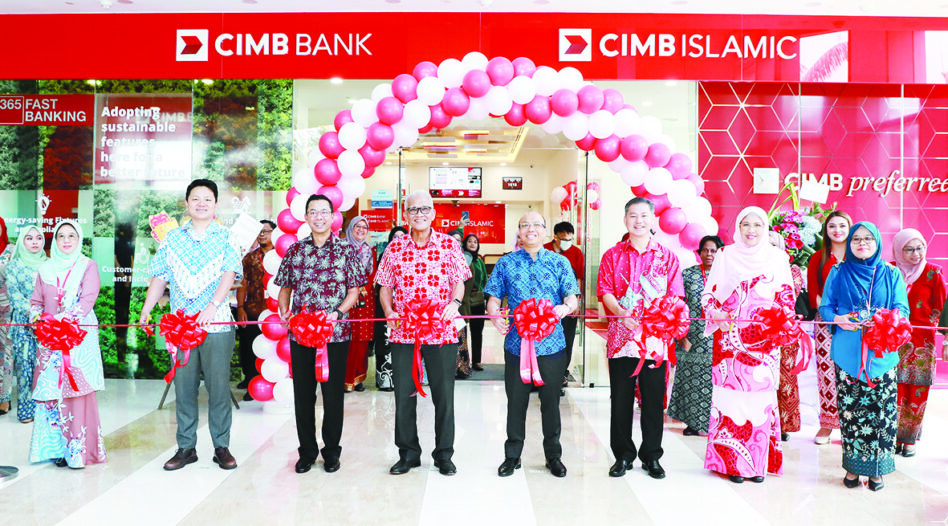By Chee Jo-Ey
TO navigate through challenges and thrive in a new year, it’s imperative we update ourselves on the latest trends on the job market.
Artificial intelligence (AI) has been the buzzword in 2019 and this is expected to continue into the new year.
As such, among the most in-demand skills will be those in the AI and technology/digital fields and companies in the manufacturing sector will be the main users of these technologies to improve efficiencies.
“We expect STEM (science, technology, engineering and math)-related skills to be much in demand next year, especially in emerging technologies such as robotic process automation as well as machine learning and AI.
“In particular, talent experienced in programming languages like Python and Golang will be in strong demand. Cybersecurity is also another area of talent growth, as more companies are also doubling down on data security to fend off increasing threats and build trust with their stakeholders and customers,” says Randstad Malaysia and Singapore managing director Jaya Dass.
Apart from that, financial and property companies are increasingly on the hunt for talents in sales and marketing who’ll be able to develop more targeted digital strategies to improve customer experience.
Hays Malaysia MD Tom Osborne notes that demand for digital skills are not limited to professionals in the areas of data analytics, cyber security and IT regulations, but also talents in human resources and marketing.
As automation continues to impact a diverse range of workplaces and jobs by replacing or taking over manual and repetitive tasks, employees will be left to zero in on the more advanced aspects of their job.
This is where automation is expected to impact industries, particularly the human resources, supply chain and finance sectors.
“Positions involving high levels of simple repetition such as finance data entry roles are at high risk of becoming redundant while in human resources and supply chain, knowledge of relevant software will become vital,” Osborne says.
Similarly, Dass points out that HR professionals are actively integrating AI into their processes to free them from time-consuming administrative tasks so that they can focus on building a highly-productive workforce.
The main benefit of AI in recruitment is that it saves time that can then be spent working to solve more complicated issues that require human creativity and, often, emotions – traits that AI can’t copy just yet.
Many companies are adopting AI tools in their HR process to improve overall candidate and employee experience. In the recruitment process, AI provides round-the-clock support to candidates by answering their questions and providing them with regular updates on their application process.
Some companies also use AI tools to identify certain qualifications, educational history, work experience and other factors that suggest a candidate has the background to emulate the top performers in the company.
Softer skills
Hard skills will be vital but this is not to say that soft skills are to be neglected. Take, for example, cross cultural management skills that will become more valuable as the work world becomes increasingly borderless.
Besides STEM skills, companies are also seeking highly-skilled local talent with regional exposure, cross cultural management experience and senior leadership capabilities, according to Dass.
Soft skills are a lot more difficult to automate or outsource and are increasingly in demand for the diverse range of benefits they bring to an organisation – be it in stakeholder management, communication skills, teamwork, adaptability or even just creative thinking.
“Global trade tensions and business restructuring have also made working regionally or cross functionally a sought-after skill, while even ‘hard’ fields like data analytics need more articulate employees who can translate complex technical data to non-technical stakeholders. Building soft skills has never been this crucial, an aspect in future-proofing one’s career,” adds Osborne.
Aside from digital skills, Osborne opines that project management is another highly regarded skill, owing to the rapid pace of change in the region.
She advises talents to look to professional certifications such as Project Management Professional (PMP), Agile Certified Practitioner (PMI-ACP) and Certified ScrumMaster (CSM) that will be valuable in an increasingly uncertain global climate.
Organisations need to combat global challenges and respond to internal or external threats without undue delay while staying aligned to business goals and consumer needs.
For this to be done effectively, project managers need to carefully manage resources and ensure that these responses are conducted in a structured, organised manner to deliver timely results.
New trends, new economy
“As more companies face ambiguity about the future due to the poor economic outlook, more employers will turn to contracting as a key workforce strategy. In addition, organisations that are undergoing restructuring efforts will look to professional contractors to fill short-term manpower needs,” says Dass.
A contingent workforce helps companies maintain talent flexibility and lower manpower costs, and allows them to remain agile to better adjust to market changes. More companies also find it productive to explore talent management and development strategies through a more flexible workforce as they are able to build a future-ready workforce without their employees being confined to fixed functions and traditional career progression paths.
“Many employers in Asia are also starting to consider temporary or contracting workers to bring in these highly sought-after hard and soft skills, marking an interesting shift in mindsets. The flexible recruitment space is certainly an area to keep an eye on as it continues to grow,” concurs Osborne.
Meanwhile, remote work will remain a huge trend in 2020 as companies increasingly recognise the advantages of expanding their talent pool beyond local geographies.
Employees can take advantage of the remote work trend and pick up skills to appeal to multinational companies.
“This includes learning another language, considering that bilingual and trilingual candidates are highly sought after in Asia, particularly in China, Hong Kong and Japan. Fluency in another language opens the way to new opportunities overseas and is also a specialist skill that can attract greater demand and higher pay,” advises Osborne.
Upskilling most important
“In 2020, we expect that employees in Malaysia will change employers in search of better pay, work location, training and development, as well as career growth opportunities. Candidates are also expected to seek more interesting job content, and will increasingly be attracted to roles that allow them to be more creative and participative,” says Dass.
“We recommend employers to select candidates based on their learning potential rather than wait for one who has the perfect skills-match, and fill those gaps after employment through training programmes.”
Companies that want to attract talent should also showcase their in-house training programmes, and share anecdotes from employees who have benefitted from them on their website and social media pages.
If the training programmes cannot be conducted by their in-house learning and development teams, employers should connect workers with professional development institutions that provide those courses and support them through their learning journey.
“Despite challenging market conditions, candidates across Asia will continue to push for better pay packages, new challenges and ways to improve their career trajectory. At the same time, the rapid pace of change, particularly that of digital transformation, will undoubtedly push more candidates to critically examine their current skill set and relevancy, as well as their potential to upskill,” says Osborne.
Although some companies may offer on-the-job training and opportunities to get formal qualifications, employees need to take the initiative themselves.
Open-minded organisations that can offer opportunities to develop and train their employees will find this to be a mutually beneficial practice and an effective way to manage the ongoing talent crunch.
For candidates, those ready to embrace the impending digitisation of all industries and equip themselves with the change management skills needed to weather transformation will be best placed for the year ahead.
Other ways to upskill on your own time include taking up mentorship programmes (either giving or receiving). Something lighter would be following industry-specific webinars and podcasts. – Jan 8, 2020

[box]Hot industries
According to Randstad Malaysia and Singapore managing director Jaya Dass, two prime industries that are expected to play a big role in Malaysia’s economy in 2020 are Islamic banking and technology.
“Malaysia has been positioned as a centre of excellence for Islamic banking and will continue to be a global hub for Islamic finance going into 2020,” she tells FocusM.
An industry largely driven by foreign direct investment, the Islamic banking scene in Malaysia has been identified as a key focus and high-growth industry by the government.
“The demand for faster, safer and more innovative technologies will continue to rise in 2020. Sectors like manufacturing, financial services and property will contribute to the rising demand for technology targeted to improve customer experience.
“Companies are increasing their investments in technology as they have the potential to reap high returns and generate cost savings. Many organisations are also building new and more targeted algorithms to improve user experience and expand their customer pool through machine learning and artificial intelligence,” Dass adds.
With the Fourth Industrial Revolution (IR 4.0) coming into play, companies have to put in place talent development strategies to ensure that their local workforce is future-ready. Future readiness is about talent being equipped with expectations on how their roles will look like in the future, and the type of technologies that will drive their functions forward.
For candidates, preparing for the future economy does not necessarily mean having to go through structured training programmes. On-the-job training and self-learning can help candidates keep abreast of current developments and stay agile. It is also critical for candidates to search and join a professional community or online network where they can build new relationships and share ideas to upskill themselves.
Companies need to engage in strategic workforce planning to find out where the skills gaps are. To thrive in the future digital-first economy, employers will have to imagine the future workplace, identify the gaps that are stopping them from realising it, and equip their current talent with skills that can help close those gaps.[/box]
[box]Praise trumps perks
In recent years, unusual perks and rewards have been increasingly used as differentiators for many organisations. From taking 6,400 staff on holiday, as Chinese conglomerate Tiens Group did in 2015, to offering egg freezing to female employees as Apple and Facebook have done, businesses have looked for new ways to attract and retain staff.
When recognition is used to improve culture, there’s a significant impact on an organisation’s ability to retain, engage and attract talent. For example, engagement increase 129% in organisations that move from weak to strong recognition practices. Additionally, people stay with an organisation two to four years longer when best practice service recognition is implemented.
Here’s Hays’ advice on successful staff recognition:
– Say ‘thank you’: A deliberate ‘thank you’ increases an employee’s feeling of appreciation by 116%, spontaneous praise increases it by 172%, while formal recognition increases appreciation by 355%.
– Recognition from the top: Effective employee recognition must be led from the top and can be done via tangible ways, such as presenting an award, or intangible ways, such as verbal praise.
– Don’t forget peer-to-peer recognition: Peer-to-peer recognition sees everyone in the organisation play a part in recognising the often quiet but critical high performers.
– Utilise internal social media: Many current recognition programmes use internal social media, such as recognition-specific tools or apps, to instantly recognise workers who go the extra mile, with the results displayed on the staff intranet or company social channels so that anyone can see them.[/box]










